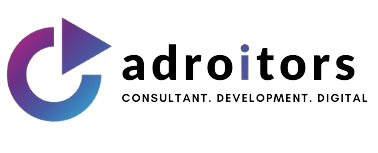



There is a severe global talent shortage for competent software developers, which has increased the demand for these professionals. Companies have raised salaries and lowered the qualifications needed to fill software development employment. Software engineers with a conventional university education have trouble finding work, while many individuals apply the knowledge acquired from specialised institutions. maybe self-taught as well. What is the most effective method for learning software development, and which language is essential? This manual will provide helpful advice on fundamental ideas and coding abilities.
Every industry uses the software. All sizes and types of businesses develop software for their technological and other endeavours. The software helps businesses meet customer needs, streamlines workflow, supports data storage, controls remote access, and strengthens data security. Because of how organisations operate, experts in both the production of custom software and of commercially available software have emerged.
1.
Types of Software developers
Every software developer will bring a broad set of skills and expertise to the table because there are so many different languages, technologies, tools, and market trends (this is frequently referred to as a developer's "tech stack"). The programme can be created for a variety of platforms, including mobile devices, websites, and gaming consoles. Additionally, developers might solely focus on a single component of the product, making it more pertinent to refer to software developers in terms of their level of skill specialisation:
2.
Front End Developer
A software developer who concentrates on an application's user interface is known as a front-end developer. Markup, web development languages (such as HTML and JavaScript), and front-end frameworks are all things that a front-end developer needs to be familiar with (e.g., React, Flutter)
3.
Back End Developer
An application's business, logic, and data are all handled by the back-end developer; these are all the software operations that the user cannot see but which control how the application operates. A back-end developer could be knowledgeable in servers, databases, CRM, systems integration, or have specific knowledge in fields like security.
4.
Full-Stack Developer
A full-stack developer is capable of managing and coding the technologies required to build the infrastructure and user interface (UI) for the product, as would be expected, and is knowledgeable about both the front and back ends.
5.
DevOps Engineer
With a focus on integration, delivery, and deployment as well as continuous security, performance, and availability, DevOps engineers assist in managing the operation of software development. DevOps engineers frequently benefit from more formal computer science, engineering, informatics, or mathematics degrees and typically have excellent systems expertise and testing experience.
6.
Mobile Developer
A software developer with a focus on mobile devices will have specialised knowledge for creating apps for mobile platforms, whether widely for cross-platform apps or narrowly for one platform (e.g., iOS or Android).
7.
Software Developer vs. Software Engineer
The terms "software engineer" and "software developer" are sometimes used interchangeably and can do many of the same tasks and have the same skills. A software developer, however, concentrates exclusively on programming and is frequently involved in smaller projects or specialised fields like mobile app development (coding, testing & debugging). A software engineer, in contrast, works on bigger projects that call for a more "architectural" approach to the whole system and has specialised knowledge in areas like data analytics, UI development, artificial intelligence or machine learning, testing, and scaling. A degree in engineering or computer science is frequently required for employment as a software engineer.
8.
Skills to Support a Software Development Learning Roadmap
There is no ideal software developer, but many skills can help you succeed in software development. These include:
- Strong memory for knowledge to support learning languages and technologies
- Eagerness to learn and stay on top of changing trends (for life!)
- Problem-solving skills to find clean, simple approaches to coding and testing
- Accuracy and attention to detail to help avoid errors and bugs
- Strong communication skills, ideally suited to the Agile methods of a custom software development company
- Mathematical aptitude
- Time management and organization skills
- Knowledge of several programming languages
- Knowledge of shared platforms and tools such as Amazon Web Service (AWS), Google Cloud Platform (GCP), Microsoft Azure, Git, and Github, and databases such as MySQL
9.
Best Way to Learn Software Development Online
Some well-known and reputable resources support the software developer learning path, including the following courses for introductory computer science knowledge (look specifically for 101, Intro to Computer Science, or Learn to Code courses).
Most introductory courses will provide a general overview of computer science knowledge and an introduction to software development in C, Python, and web development (HTML, CSS, Java). Various free options and paid courses come with learning and mentor support. Most online courses are developed for a specific duration (e.g., 10-12 weeks) but are designed to be self-paced. After these introductory courses, most online custom software development programs will offer a wealth of additional courses to continue into more specialized areas by language or subject (e.g., web development, data science, machine learning). Some courses will offer certifications in a more structured curriculum vs. the lack of transparency in self-learning options.
10.
How Long Does It Take to Learn Software Development?
To answer the question of how long to learn software development – this differs by the type of software development path chosen and the pace at which learning is being done, whether full-time or part-time. The speed of learning software development can vary significantly by individual, by choice of which language to learn for software development, and by the previous experience (if any) with basic software development concepts.
A more traditional computer science or engineering degree will take an average of 4 years, plus any prior work experience necessary to secure a job. For independent learners, it takes 3-6 months to learn the basics of software development and 9-12 months to become proficient enough to secure a job.
The best way to learn software development is to choose a software development learning path and take the first steps on that journey. However, it is essential to note that the software development learning path is never “complete” – one must continue to learn new technologies, frameworks, tools, and even languages to remain competitive as a software developer.





